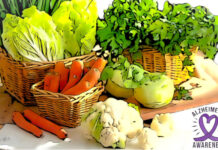Not adding more salt to foods increases life expectancy and makes people live better, reducing the risks of serious and chronic diseases.
Abolish the salt shaker at the table is thus the advice from the study of half a million people conducted by researchers at Tulane University School of Public Health and Tropical Medicine (New Orleans, USA), just published in the European Heart Journal. (1)
Salt, 5 g/day the threshold not to be exceeded
501,379 individuals, selected from participants in the Biobank UK cohort study, took part in the research. They reported, via a questionnaire, their habit of adding extra salt to foods. 4 levels, from ‘never‘ to ‘always‘.
WHO recommends not exceeding 5 grams of salt each day, Not an easy task, since many processed and ultra-processed foods-including vegetarian and vegan foods, as noted -have high contents of salt and other sources of sodium (e.g., sodium glutamate).
Excess salt, what consequences?
Those who ‘always‘ add salt to foods, according to the study authors (Hao Ma et al., 2022), have a 28 percent higher risk of premature death from any cause than those who never or rarely add it. Regardless-let it be noted-of other factors such as diet, lifestyle, socioeconomic level, and pre-existing diseases.
The reduction in life expectancy was measured in:
– 1.5 years and 2.28 years, for women and men respectively, at age 50,
– 1.37 and 2.04, again from the female gender, at age 60.
The causes of the deaths
As for the cause of early death, the researchers explain that ”the increased risk of all-cause mortality associated with more frequent addition of salt to foods could be attributed in part to cardiovascular disease and cancer-specific mortality. These observations are consistent with previous evidence linking salt intake to various conditions including cardiovascular disease and cancer.
Evidence from experimental and epidemiological studies showed that excessive sodium intake was related to gastric, liver, lung, and renal cell cancer. Furthermore, for cardiovascular disease mortality subtypes, we found that a higher frequency of salt addition to foods was significantly associated with a higher risk of stroke mortality but not coronary heart disease mortality‘.
Fruits and vegetables reduce the risk
The good news is that ‘high intakes of potassium-rich foods, such as fruits and vegetables, may attenuate the association between salt addition to foods and mortality.’
Between the scrapping of the salt shaker and increased consumption of fruit and vegetables, increasingly better organic, the indications for initiating change are loud and clear.
Notes
(1) Hao Ma, Qiaochu Xue, Xuan Wang, Xiang Li, Oscar H Franco, Yanping Li, Yoriko Heianza, JoAnn E Manson, Lu Qi. Adding salt to foods and hazard of premature mortality. European Heart Journal, 2022, https://doi.org/10.1093/eurheartj/ehac208
Professional journalist since January 1995, he has worked for newspapers (Il Messaggero, Paese Sera, La Stampa) and periodicals (NumeroUno, Il Salvagente). She is the author of journalistic surveys on food, she has published the book "Reading labels to know what we eat".







